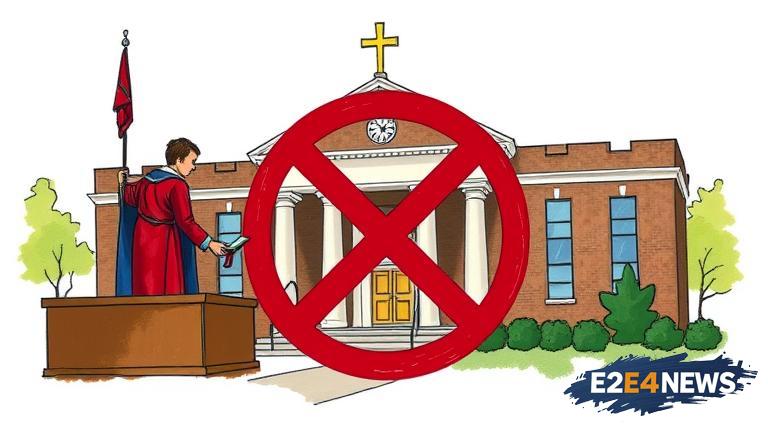In a landmark decision, a Minnesota judge has ruled that the state cannot discriminate against religious schools, citing the importance of equal treatment and protection under the law. The ruling, which was handed down on August 2025, is a significant victory for religious schools and organizations that have long argued that they are unfairly excluded from state funding and programs. The case, which was brought by a group of religious schools, challenged a state law that prohibited the use of public funds for religious education. The judge found that the law was unconstitutional and that it unfairly discriminated against religious schools. The ruling has significant implications for the state’s education system and could potentially pave the way for religious schools to receive public funding. The decision is also likely to be appealed, with opponents arguing that it blurs the line between church and state. Despite the potential for appeal, the ruling is a major victory for religious freedom and the rights of religious schools to operate on an equal footing with their secular counterparts. The case has sparked a heated debate about the role of religion in public life and the extent to which the state should support religious education. Proponents of the ruling argue that it is a necessary step towards promoting greater diversity and inclusivity in the state’s education system. They also argue that it is essential to recognize the important contribution that religious schools make to the state’s educational landscape. On the other hand, opponents of the ruling argue that it undermines the separation of church and state and could lead to the misuse of public funds. They also argue that it could create unequal opportunities for students who attend secular schools. The ruling is likely to have significant implications for the state’s budget and could potentially lead to an increase in funding for religious schools. It could also lead to an increase in the number of students attending religious schools, as parents seek out alternative education options. The decision is also likely to be closely watched by other states, which may be considering similar legislation. The ruling has been hailed as a major victory by religious freedom advocates, who argue that it is essential to protect the rights of religious schools and organizations. They also argue that it is necessary to promote greater diversity and inclusivity in the state’s education system. The case has sparked a wider debate about the role of religion in public life and the extent to which the state should support religious education. The ruling is likely to be appealed, but for now, it stands as a significant victory for religious freedom and the rights of religious schools. The decision is a testament to the importance of protecting the rights of all individuals and organizations, regardless of their religious beliefs. It is also a reminder that the separation of church and state is a fundamental principle of American democracy. The ruling has significant implications for the future of education in Minnesota and could potentially pave the way for greater diversity and inclusivity in the state’s education system. The decision is a major step forward for religious freedom and the rights of religious schools, and it will be closely watched by advocates and opponents alike. The case has highlighted the importance of protecting the rights of all individuals and organizations, regardless of their religious beliefs. It has also sparked a wider debate about the role of religion in public life and the extent to which the state should support religious education. The ruling is a significant victory for religious schools and organizations, and it will have far-reaching implications for the state’s education system. The decision is a testament to the importance of promoting greater diversity and inclusivity in the state’s education system, and it will be closely watched by advocates and opponents alike.
